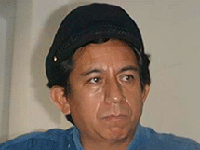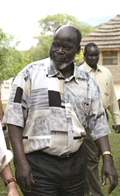
Anything but the Truth: The Art of Managing Perceptions
In The Secret Man, Bob Woodward's new book about his Watergate source Deep Throat, he notes, "

In The Secret Man, Bob Woodward's new book about his Watergate source Deep Throat, he notes, "

Win the elections and arrive at a Constitutional Assembly that changes the roots of the power structure in

As 1960s

The death on July 30th of the southern Sudanese leader John Garang de Mabior endangers a fragile and incomplete accord to end the 1983-2005 North-South civil war and complicates further efforts to bring to an end the conflicts in the four provinces of
Garang had enemies both among the northerners he had long fought but also among rivals for leadership among southern groups. It was only a month ago, July 9th, that John Garang was installed as first vice-president of Sudan in a North-South power-sharing agreement, but the practical role of Garang and other southerners in the government, the administration and the army had not been worked out and may now be called into question.

Fresh on the heels of the London bombings, the U.S. government has been quick to exploit these incidents to further usher in the new security state, which claims to protect citizens from a threat it wishes the public to imagine requires governmental solutions. Never mind that none of these new measures actually increase anyone's security, except the security of those in power from those they govern.

"Blaming the International Monetary Fund (IMF) for the difficulties faced by a country in times of crisis is like blaming the doctor for the patient's disease". This statement and others like "the IMF does not represent the interests of the G8" are part of an outrageous manual that teaches the organization's officers how to reply to the uncomfortable questions asked by the press. Perhaps, the text became effective after a reporter asked Anne Krueger - First Deputy Managing Director of the IMF - if her organization was responsible for the increasing poverty in
Copyright Toward Freedom 2019